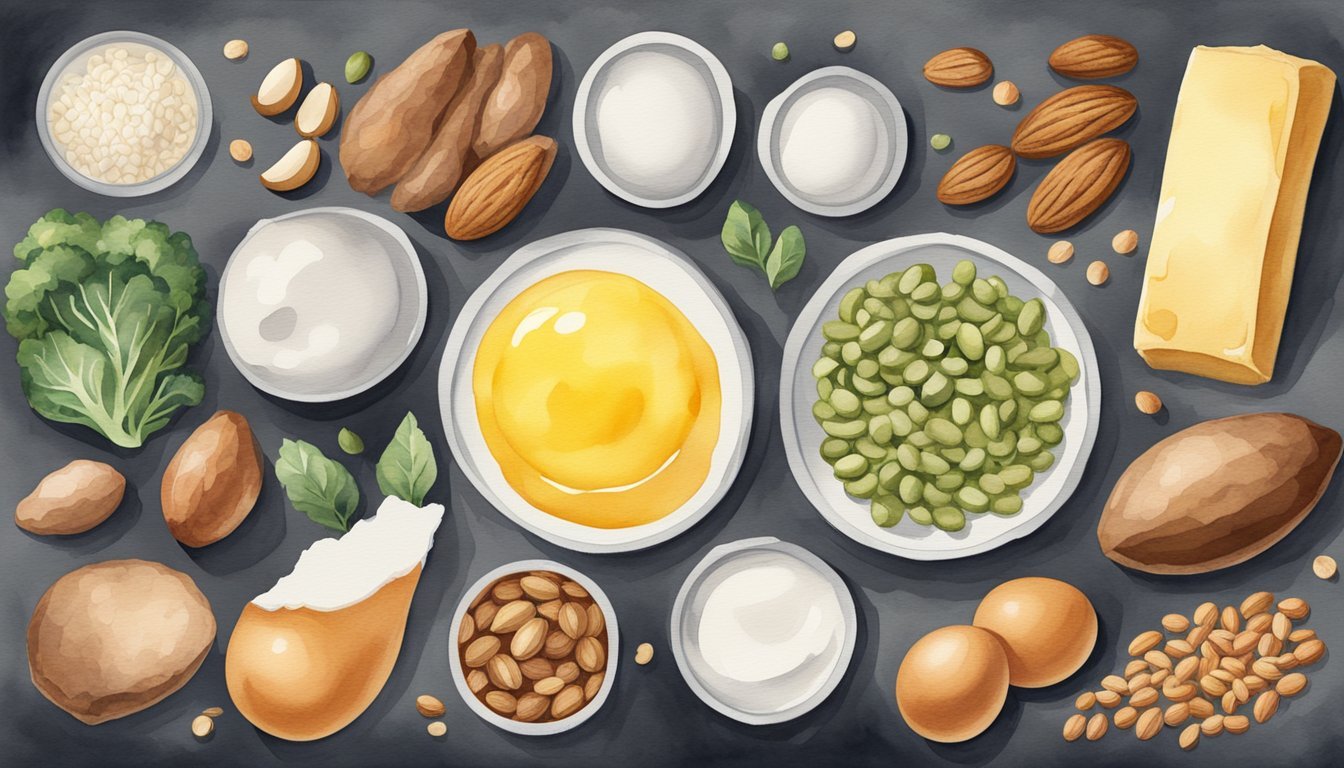Understanding Protein and Its Caloric Content
Protein is an essential macronutrient that provides calories or energy to the body, with each gram containing a specific calorie count. This section explores the connection between protein and its caloric content, and how to manage protein intake according to individual health and lifestyle needs.
Basic Facts About Protein and Calories
Protein is one of the three macronutrients that the body requires for energy, alongside carbohydrates and fats. Every gram of protein provides approximately 4 calories. Proteins are made up of amino acids, which are the building blocks for many structures in the body, including muscles and immune system components.
Protein’s Role in Health and Diet
As a crucial nutrient, protein has a significant role in muscle repair, enzyme and hormone production, and overall health maintenance. The percentage of calories from protein that individuals need in their diet can vary based on factors such as body weight, activity level, and specific health goals, whether it be for weight loss, muscle gain, or maintenance.
Calculating Protein Intake for Different Lifestyles
To calculate protein needs, consider the individual’s lifestyle. For example:
- Sedentary lifestyle: 0.8 grams of protein per kilogram of body weight
- Active lifestyle or weight loss goals: 1.2 to 1.7 grams per kilogram
- Athletes or heavy exercisers: Up to 2 grams per kilogram
It’s important to tailor protein intake to one’s activity level and to adjust as exercise routines or body weight goals change.
Sources of Protein and Nutritional Considerations

Protein serves as a critical building block for muscles, skin, enzymes, and hormones. It’s essential for maintaining and repairing body tissue. Whether sourced from plants or animals, protein forms an integral component of a balanced diet, and its intake should be carefully considered in terms of nutritional content and health impact.
Animal vs. Plant-Based Protein Sources
Animal-based proteins, such as meats, milk, and seafood, are renowned for their complete protein profiles, meaning they contain all nine essential amino acids necessary for human dietary needs. On the contrary, most plant-based sources like legumes, nuts, and grains often lack one or more essential amino acids. However, combining different plant proteins can ensure a full range of amino acids. For those following a vegetarian or vegan diet, a diverse mix of plant proteins is crucial to meet protein needs without animal products.
Protein Quality: Complete and Incomplete Proteins
Proteins are evaluated based on their amino acid composition and digestibility. Complete proteins contain all essential amino acids in sufficient quantities, typically found in animal products and a few plant sources such as quinoa and soybeans. Incomplete proteins lack one or more essential amino acids, common in plant sources. It’s vital for those on plant-based diets to include a variety of protein sources to acquire a complete amino acid profile for maintaining muscle mass and overall health.
Balancing Macronutrients for Healthy Weight Management
For healthy weight management, it’s important to balance protein with other macronutrients: carbohydrates and fats. Protein can contribute to a sense of fullness, aiding in weight management or loss. Athletes or those very active might require a higher intake to support lean muscle mass, which should be discussed with a registered dietitian. A balanced intake should also consider the role of fiber, vitamins, and minerals found in foods that are also protein-rich, which contribute to overall nutritional quality and body composition. Common wisdom suggests the intake of protein should be around 0.8 grams per kilogram of body weight, but individual needs vary greatly based on physical activity level, age, and health status, as noted by the American College of Sports Medicine.

